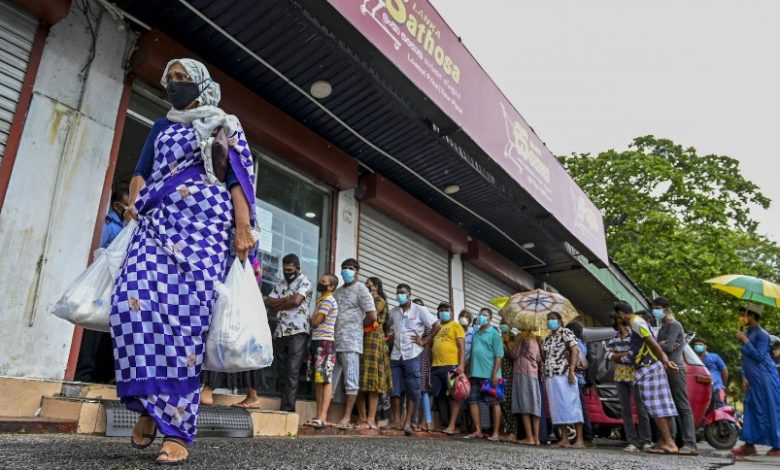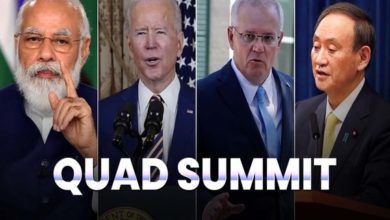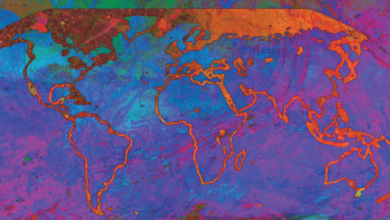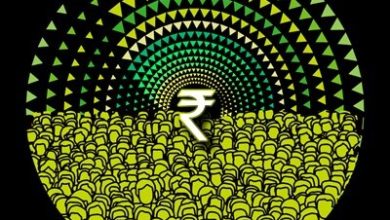
Ever since the National State Assembly’s drafted 1978 Sri Lankan Constitution was adopted, the urgency of street violence to suppress public opinion and rallies or even protests on matters affecting the country became a necessity. Over the years, the government and the state authorities acquired experience in the act of violence to confuse the general public and divert their attention from pressing problems to other issues. In such a situation of violence, the citizens become scared and are cautious about freely expressing themselves or even demanding redressal for their difficulties.
But this time, things got worse. The emerging problems are much more challenging and tough than those faced before. Probable starvation or, at the very least, severe shortages of basic necessities have been anticipated and even observed. Many people in low-income categories, such as those who get the Samrudhi subsidy, face challenges like as hunger and lack access to basic necessities. The medical system is in serious havoc where there are constant complaints by people suffering from fatal diseases like cancer, kidney disease, and other serious illnesses.
To add to this suffering, the government itself is complaining about its inability to deal with the foreign exchange crisis. This means that with the gradual depletion of the nation’s treasury, more and more burdens are imposed on the people by way of constant price increases of essential items. The entire country is in an agitated state.
Teachers have shown their fits of anger by taking to the streets for many months now, demanding a salary increase, and refusing online modes of teaching. World history knows it, farmers are the most suffered in country’s tough time. Farmers of the country are demanding fertilizers to cultivate their crops, and even burning effigies of the agriculture minister to show their desperation for the same. The discontent and panic are widespread and it keeps on rising.
Source – timesofindia
The government believes and accepts that it is now in a most helpless position; this is not a normal situation of unrest. The country lies in hands of powerless authorities while people feel a sense of solidarity and strength in numbers as dissatisfaction spreads across the country.
The more political leaders feel powerless, the more they will seek power to protect themselves. In this case, that force is the Sinhala Buddhist movement, which has nothing to do with Buddhism or Sinhala but is a strong organization that seeks special benefits for certain groups of people. Faced with the worst crisis in history, the government has created a Presidential Task Force commanded by a Buddhist monk who is notorious for his harsh words and acts, as well as his contempt for any moral code of human civilization, including democratic norms.
The elected President Gotabaya Rajapaksa mandated to use the concept of One Country, One Law, led by the zealous monk Galagoda Aththe Gnanasara Thero, is a clear indication that another era of violence is on the way in Sri Lanka. With almost the entire nation making the most widespread protests in recent history, the government needs to encourage those who wish to take to the streets under the pretext of defending the One Nation, One Law. The aim is to bring about a period of religious tension and violence, diverting people’s attention from their current struggles on economic and social issues.
Source – icj.org
Why a Presidential Task Force?
Because it can give some kind of law and legitimacy to anything the government will do. By doing so, the government has already indicated that it will cross the limits to protect its friends as it did in the case of 11 people who were abducted and killed in the Navy Camp. The campaign gained momentum after the 2019 Easter suicide attack in which over 270 people, including 11 Indians, were killed. The well-planned attack was blamed on the extremist Islamic group National Thawheed Jamaat (NTJ).
Nine suicide bombers, belonging to local Islamic extremist group NTJ linked to ISIS, are believed to carry out a series of blasts that blew off three churches and as many luxury hotels in Sri Lanka, killing over 270 people and leaving over 500 people injures on April 21, 2019.
Sri Lanka, a Buddhist-majority country, was about to mark a decade since the 37-year-long Tamil separatist conflict ended in May 2009, when the explosions in 2019 jolted the country and instilled irreversible terror in the minds of the people.
And there are other criminals who are pardoned. The Force shall be authorized to engage in any activity that it wishes to perform with the assurance of direct or indirect punishment.
Source – ucanews.com
What has been thought under the slogan “One Country, One Law” is that there will be no firm laws on which the country can live. This is no exaggeration. The country’s centralized and standard power authority has been torn to pieces under the President’s auspices. This means a group of various people that were working in the state authorities to ensure that the country remains stable and that all resources are available now vanishes. By its very nature, the working if a country doesn’t lie with one single body/ authority.
A smooth functioning in the demographic matter without any injustice requires various other literate and elected authorities for each criterion. The idea of a one-single man “ruling” the country is politically absurd and an indication of unacceptable forced dictatorship. This nonsense has been legalized and moreover forced in the name of nationalizing the country and the outcome is that the legal system has collapsed everywhere. The very law that was made for ensuing secure living for all is now obsolete for this country. And this is no less than the worst nightmare.
The Task Force will make the law enforcement situation worse. The people who work under the law’s protection will now be more under the “control” of the police or the army that is indirectly governed by the task force. This clearly states the huge threat to justice for all the citizens of Sri Lanka. The challenge is determining how far the ramifications of those activities will extend and how harmful they will be to the general welfare.
When word of the new task force leaked, a politically astute former Peradeniya Engineering Professor jumped in, saying that despite ‘one country, one law,’ Sri Lanka is being taken from a position of ‘one country, no law,’ to a new state of ‘no country, no law.’
An unpopular ruling body, i.e., the government, will attempt to maintain power by instigating violence and posing a threat to people’s livelihoods. The task force, according to the gazette, is required to make a study of the implementation of the “concept- One Country, One Law” within Sri Lanka and prepare a draft Act for the purpose, and submit a report by February 28, 2022.
Written by- Aanchal Shah
Edited by- Khyati Kallianpur
The post A Country without Law? appeared first on The Economic Transcript.





